24 may 2023 : The Hindu Editorial
The Hindu Editorial
24-May-2023
Daily Current Affairs For UPSC ,The Hindu Editorial Summary
1. Justice also makes space for the animal world.
Topic: GS1 – Indian Society/Art and Culture.
Context:
-
-
-
The case before the Supreme Court of India involved a challenge to the validity of a Tamil Nadu law allowing the practice of Jallikattu, a bull-taming sport.
-
The Supreme Court had previously declared the practice illegal in 2014, stating that it caused unnecessary pain and suffering to the bulls.
-
-
Issue:
-
-
-
In 2017, the Government of Tamil Nadu introduced amendments to the Prevention of Cruelty to Animals Act, exempting Jallikattu from its protections in order to preserve the state’s tradition and culture.
-
The petitioners argued that the amendments failed to overcome the previous judgment and violated the constitutional right to life (Article 21) by impacting animal welfare.
-
The Court’s response was criticised as dissatisfactory and contradictory, particularly regarding claims of personhood for animals.
-
The Court acknowledged that animals do not have fundamental rights in India but suggested that the amended law could be tested for reasonableness under Article 14.
-
However, the judgment lacked analysis on whether the amendments violated the requirements of equal treatment.
-
The interpretation that animals are not persons and do not have fundamental rights is not implausible based on the Constitution.
-
Instead of focusing on personhood, the article proposes reimagining rights to include animal welfare as intrinsic to the constitutional arrangement.
-
The Court’s previous engagement with rights related to a healthy environment and clean air and water supports the argument that a meaningful life includes respecting and treating animals with equal concern.
-
Viewing the Prevention of Cruelty to Animals Act of 1960 as a means to enforce fundamental rights can be pursued without requiring the recognition of animal personhood.
-
Society has a collective obligation to extend justice and commitment to animal welfare alongside human beings.
-
-
2. Disregarding Constitution, court, citizens
Topic: GS2 – Indian Polity.
Previous year Questions on this topic:
-
Whether the Supreme Court Judgement (July 2018) can settle the political tussle between the Lt. Governor and elected government of Delhi? Examine. (GS 2 – 2019, 250 Words)
Context:
-
-
-
The Supreme Court recognised the control of the Delhi government over administrative services, emancipating the elected government from the interference of the Lieutenant Governor (LG) appointed by the Central government.
-
-
Issue:
-
-
-
The Central government had previously taken away the Delhi government’s control over services in 2015, leading to problems in governance and hindering relief efforts during the pandemic.
-
The elected government was kept in the dark regarding decisions on appointments and transfers, leading to mismanagement and corruption.
-
The Supreme Court’s decision restored the chain of accountability involving the people, legislature, government, and bureaucracy, paving the way for an efficient and accountable administration.
-
However, the Services Ordinance introduced by the Central government nullifies the Supreme Court’s judgment and reverts control over services to the unelected LG.
-
The ordinance undermines cooperative federalism, disregards the value of the citizen’s vote, and institutionalises the Center’s tendency to undermine democratically elected governments in non-BJP-ruled states/territories.
-
The Supreme Court’s judgment will be remembered as a vindication for the elected Delhi government, while the ordinance will be seen as an attempt to disempower opposition-run governments and disenfranchise the people.
-
-
Provisions regarding Delhi under Art 239AA (69th Amendment) 1991 of the Indian Constitution
-
-
It Enabled a Legislature in Delhi
-
The Council of Ministers will aid and advise the L-G in matters where the Legislative Assembly has the power to make laws except where the L-G can exercise discretion (i.e. Police, public order and Land).
-
Limitations of power of govt. In Delhi: It Precludes Delhi from control over land, police & public order.
-
In case of a difference of opinion, the LG shall refer it to the President for decision, and pending such decision, it shall be competent for the LG to take action where the matter is so urgent that it is necessary for him to take immediate action.
-
Problems:
-
In executive: The Centre controlled the transfers and the appointment in the Delhi government, which often created friction between the officers and the elected counterparts.
-
Legislative problems: The Centre had argued that since no UT has power over services, Delhi, too, could not exercise such power. Therefore, Delhi could only legislate on issues that other UTs are explicitly allowed to legislate upon.
Supreme Court Judgement:
-
A five-judge Constitution bench headed by CJI DY Chandrachud unanimously ruled on May 11 that the Delhi government has legislative and executive powers over administrative services in the national capital.
-
Delhi, under the Indian constitutional scheme, is a unique model (Sui Generis) and is not similar to any other UT. Delhi presents a special constitutional status under Article 239AA.
The ordinance by the Central Government
It mentions that using the powers of Article 239(1), Article 239AA(3)(b) and Article 239AA(7), an ordinance is being passed to provide for a comprehensive scheme of administration of services. Since Parliament is not in session, it is passed.
Amendments by the Ordinance:
-
It adds Section 3A to the GNCTD Act, 1999, which takes away the power of the legislative assembly to make laws in matters or Services (i.e. entry 41, List II – services).
-
It creates a National Capital Civil Service Authority which will recommend the transfer and postings of officers/employees employed in the functioning of the GNCTD. It will consist of the CM of Delhi, Chief Secretary of Delhi and Principal Home Secretary of Delhi.
-
It amends Section 41 of the NCTD Act, 1999, which lists the matters wherein the LG acts at his discretion. It amends the phrase ‘acts in his discretion’ to ‘acts in his sole discretion’ in the title of the Section and the body. It also adds that the LG will act in his sole discretion while discharging functions under Part IV of the ordinance which includes dealing with the recommendations of the National Capital Civil Service Authority.
Therefore, the ordinance gives the LG primacy over the matter of services in Delhi.
3.The paradox of BRICS is its new pathway.
Topic: GS2 – International Relations.
Context:
-
-
-
BRICS, which stands for Brazil, Russia, India, China, and South Africa, is an international grouping of emerging economies.
-
-
Issue:
-
-
-
Jim O’Neil’s BRIC acronym gained popularity two decades ago, representing Brazil, Russia, India, and China.
-
Brazil and India formed IBSA with South Africa in 2003, which China wanted to join but was rejected due to the forum’s emphasis on democracies.
-
China brought South Africa into BRIC, transforming it into BRICS and overshadowing IBSA.
-
BRICS focused on geopolitical and economic dimensions, projecting a non-western view and promoting multipolarity.
-
BRICS launched initiatives such as the New Development Bank, the Contingent Reserve Arrangement, and programs for trade and investment cooperation.
-
The IBSA trio expected China and Russia’s support for their bid to secure UN Security Council membership but were disappointed.
-
China’s economic rise and military assertiveness disrupted the group’s balance, along with Russia-China cooperation, South Africa’s economic challenges, and Brazil’s political shifts.
-
Inner troubles within BRICS include tensions caused by China’s assertiveness and Beijing’s push for a common currency for intra-BRICS trade.
-
-
An admission Rush:
-
-
-
China is pushing for the expansion of BRICS to extend its global influence.
-
Many countries are eager to join BRICS due to the fear of missing out on membership in a visible and influential club.
-
The demand for joining BRICS reflects anti-western sentiments and a desire to create a significant forum for the Global South.
-
The next BRICS summit, hosted by South Africa, could make decisions on expansion and criteria.
-
Three options are available for expansion:
-
-
-
mega expansion to 21 members,
-
limited admission of 10 new members, or
-
admission of only five new members.
-
-
-
If the third option wins consensus, Argentina, Egypt, Indonesia, UAE, and Bangladesh are likely to be admitted.
-
It is unlikely that the BRICS leaders will meet physically, and a digital summit is more probable due to legal obligations and potential conflicts.
-
The leaders should focus on strengthening BRICS and addressing internal imbalances.
-
With new members, the group’s name might change, and the future of BRICS could be better than its past.
-
-
For Enquiry

24 may 2023 : The Hindu Editorial

24 May 2023 : Daily Current Affairs

23 May 2023 : PIB

23 May 2023 : The Hindu Editorial

23 May 2023 : Daily Current Affairs
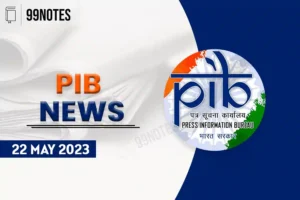
22 May 2023 : PIB
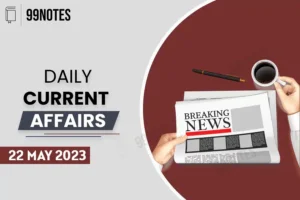
22 May 2023 : Daily Current Affairs
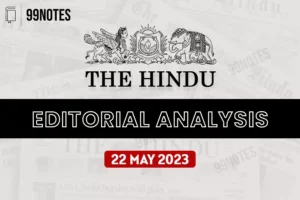
22 May 2023 : The Hindu Editorial
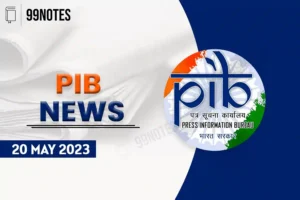
20 May 2023 : PIB
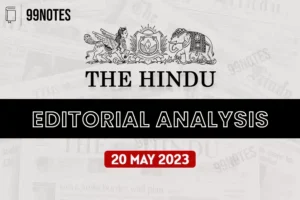
20 May 2023 : The Hindu Editorial
The Hindu 24 may 2023 : The Hindu Editorial The Hindu Editorial
12-May-2023
Daily Current Affairs For UPSC ,The Hindu Editorial Summary
Facebook-f
Twitter
Youtube
1.Marriage…
Daily Current Affairs 24 May 2023 : Daily Current Affairs DAILY CURRENT AFFAIRS
24-May-2023
Daily Current Affairs For UPSC ,Daily Current affairs of The hIndu…
PIB 23 May 2023 : PIB PRESS INFORMATION BUREAU
23-May-2023
Daily Current Affairs For UPSC ,The PIB ( Press Information Bureau…
The Hindu 23 May 2023 : The Hindu Editorial The Hindu Editorial
23-May-2023
Daily Current Affairs For UPSC ,The Hindu Editorial Summary
Facebook-f
Twitter
Youtube…
Daily Current Affairs 23 May 2023 : Daily Current Affairs DAILY CURRENT AFFAIRS
23-May-2023
Daily Current Affairs For UPSC ,Daily Current affairs of The hIndu…
PIB 22 May 2023 : PIB PRESS INFORMATION BUREAU
22-May-2023
Daily Current Affairs For UPSC ,The PIB ( Press Information Bureau…
Daily Current Affairs 22 May 2023 : Daily Current Affairs DAILY CURRENT AFFAIRS
22-May-2023
Daily Current Affairs For UPSC ,Daily Current affairs of The hIndu…
The Hindu 22 May 2023 : The Hindu Editorial THE HINDU EDITORIAL
22-May-2023
Daily Current Affairs For UPSC ,The Hindu Editorial Summary
Facebook-f
Twitter
Youtube
1. Delhi’s…
PIB 20 May 2023 : PIB PRESS INFORMATION BUREAU
20-May-2023
Daily Current Affairs For UPSC ,The PIB ( Press Information Bureau…
The Hindu 20 May 2023 : The Hindu Editorial The Hindu Editorial
20-May-2023
Daily Current Affairs For UPSC ,The Hindu Editorial Summary
Facebook-f
Twitter
Youtube
1. Among…




